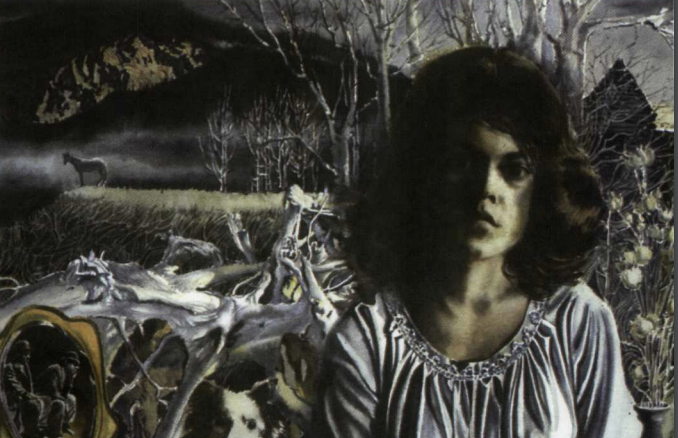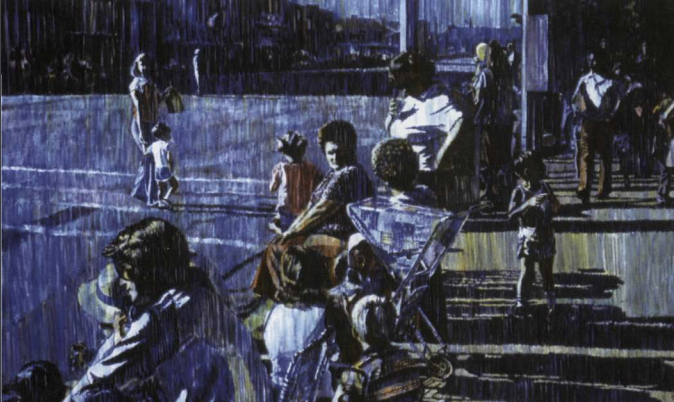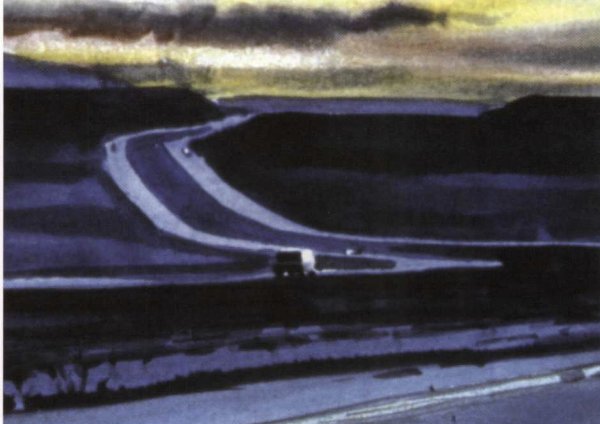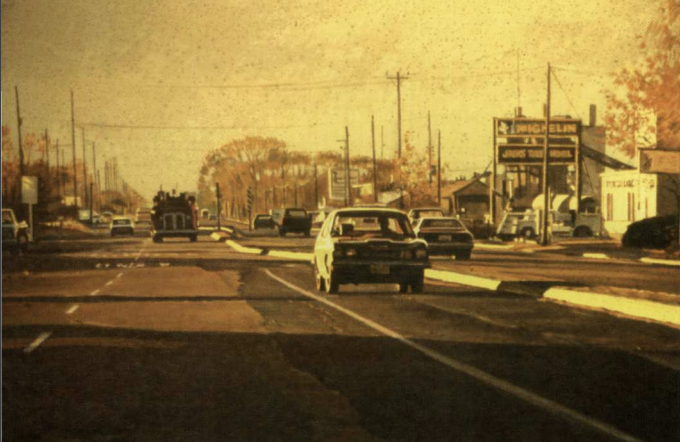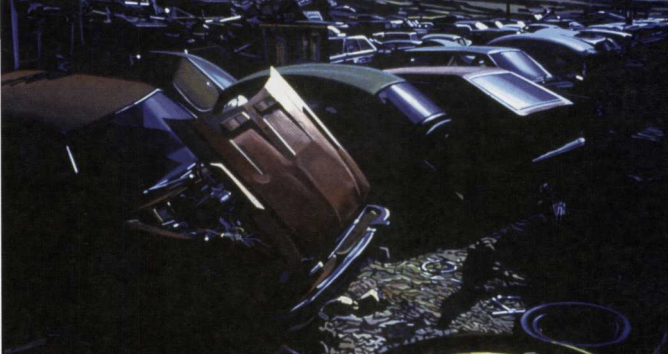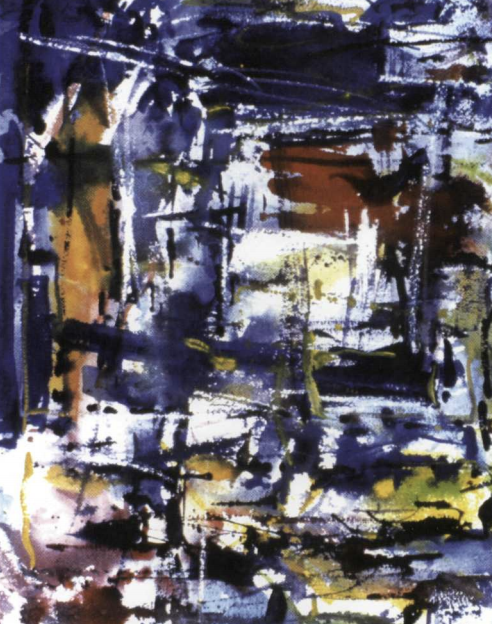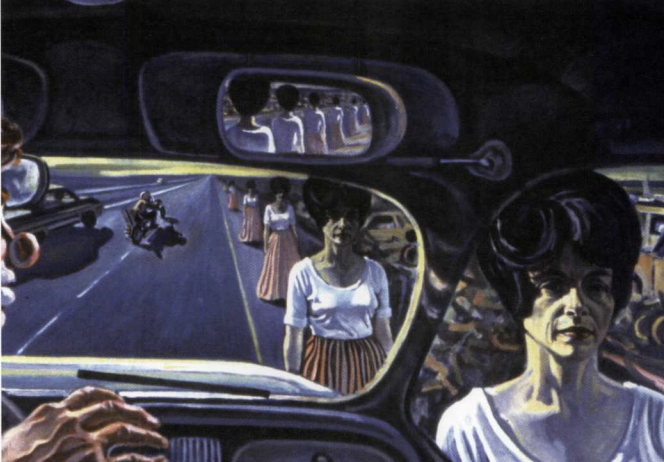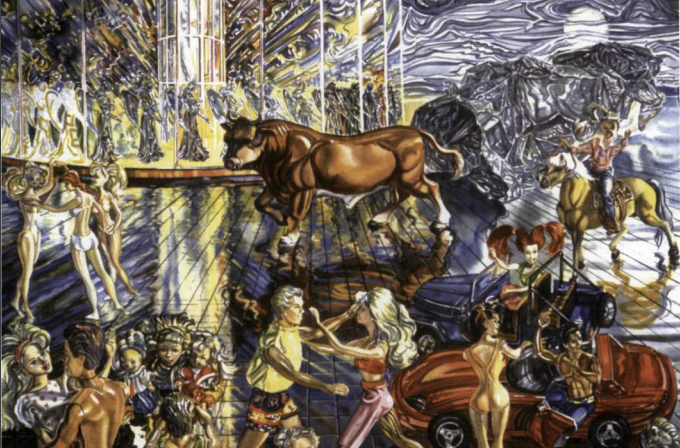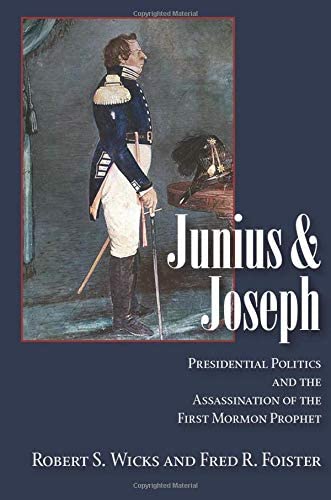
Volume 39, No. 2
Summer 2006
The Summer 2006 issue begins with "Eternal Progression in a Multiverse: An Explorative Mormon Cosmology" which provides a fascinating connection between the Mormon doctrine of eternal progression and the multiverse theory, providing a look at how the doctrine would be implemented should the multiverse theory be true. This is followed by "Without Purse or Scrip in Scotland" by Polly Aird which takes a look at Scottish missionaries serving in Scotland in the nineteenth century. Finally, we have an exploration of patriarchy and gender equality in the Bible, specifically referencing Paul's writings to the Ephesians. Also included in this issue are several beautiful works of art, a pair of fictional works, and a reflection on forty years of Dialogue.
Contents
Articles
Celebrating Forty Years: Retrospection and Assessment
Levi S. PetersonOur readers may recall the announcement of our commemoration of Dialogues fortieth year in our last issue. In keeping with that announcement, we publish here two retrospective statements from earlier editors of the journal. One…
Read more
The Possibilities of Dialogue
Robert A. ReesIn a remarkable essay entitled “Beyond Politics” in a recent issue of BYU Studies, Hugh Nibley makes an exciting observation: God not only desires a free discussion with [his children], he encourages it. Further, it is an essential part of his modus operandi for our return to his presence. In his own translation of John 1:1, Nibley illustrates how indispensable this concept was to the very order of things: “In the beginning was the Logos [counsel, discussion], and the Logos was in the presence of God, and all things were done according to it. . .”
Read more
Famous Last Words, or Through the Correspondence Files
Mary Lythgoe BradfordFor the past six years, I have been engaged in various dialogues best under stood by a quick trip through the editorial correspondence files, a sort of diary (or dia-log) of my term as editor. In that fragmentary record I grope for a synthesis that eludes me. Whenever someone politely asks me what kind of journal DIALOGUE is, I usually fall back on words like quarterly, intellectual, and scholarly.
Read more
A Lament
Molly BennionEight times the Lord lamented that it grieved him to lose the branches of His vineyard (Jac. 5). Surely it grieves him to lose the women who have left the Church or quietly disengaged from active Church involvement. It grieves me. I miss them terribly.
Read more
Fiction
The Walker
Matthew James BabcockOur firsts and lasts were leaves burned the hour we left. Ted Hughes You could say that my life and The Walker’s life—well, it’s all been a question of firsts. And to be honest, I thought…
Read more
The Dissonance of Absolution
Gary G. HernandezThe phone rings once. I think about hanging up. The phone rings twice. I begin to believe my luck might hold out. The third ring proves me wrong. Something is amiss when grown children, adults…
Read more
Interview
“Astonished Each Day”: An Interview with Richard J Van Wagoner Utah Artist
Levi S. PetersonNote: This interview, conducted by Dialogue’s editor, introduces Richard J Van Wagoner, whose art is featured in this issue. Richard is a retired professor of art from Weber State University, where he and Levi sat…
Read more
Letters to the Editor
Letters to the Editor
Letters to the Editor, Dan Vogel, Larry Day, Kevin L. Barney and Wayne SchowWayne Schow, Mormon Straight/Gay Marriages
Paula Goodfellow, Correction of Wording
Kevin L. Barney, Fairness to FARMS
Larry Day, We Blush
Dan Vogel, Treasure Lore Revisited
Read more
Notes
An Open Letter to Nathan Oman
Robert A. ReesDear Nathan:
I appreciate your “An Open Letter to the Dialogue Board” (38, no. 4 [Winter 2005]: 227-29). I consider it a sincere and thoughtful expression of an ideal I share: a more balanced, diverse, and inclusive dialogue about Mormon religion and culture. As a former editor of Dialogue (1971-76), I am pleased that, as you say, “you care a great deal about the health and public reputation of Mormon intellectual fora” (227).
Read more
Reviews
A National Conspiracy? | Robert S. Wicks and Fred R. Foister, Junius & Joseph: presidential Politics and the Assassination of the First Mormon Prophet
Michael W. HomerRobert S. Wicks and Fred R. Foister selected the title Junius & Joseph to emphasize their thesis that Joseph Smith’s death was a political assassination. The authors point out that the Junius tracts were “issued…
Read more
A Trader and His Friends | Susan E. Woods and Robert S. McPherson, eds., Along Navajo Trails: Recollections of a Trader by Will Evans
Deb Thornton“Imagine.” Will Evans’s evocative text begins with an invitation to the reader to enter the Welsh immigrant’s bull pen, roll a smoke with free tobacco plugged on the nailed-down lid of a lard can, and…
Read more





